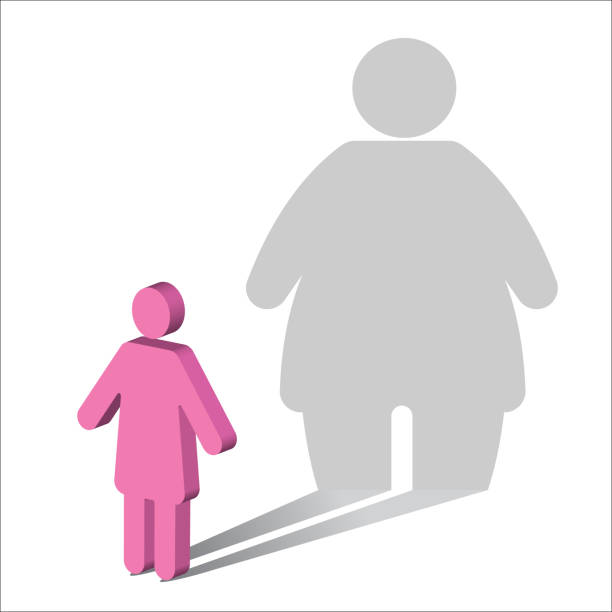*Note: May contain triggering information if you’ve suffered from an eating disorder in the past.
The benefits of intermittent fasting are everywhere. It does have proven benefits and is good for some- unless you’ve suffered from an eating disorder in the past.
I read the benefits on the gut from intermittent fasting. It allows your stomach and gut time to process what you’ve eaten- gives your body a rest from new nutrients in order to do its work. For someone suffering from gut issues, it sounded promising.
According to healthline:
“Here are some of the changes that occur in your body during fasting:
- Insulin levels: Blood levels of insulin drop significantly, which facilitates fat burning (1Trusted Source).
- Human growth hormone: The blood levels of growth hormone may increase as much as 5-fold (2Trusted Source, 3Trusted Source). Higher levels of this hormone facilitate fat burning and muscle gain, and have numerous other benefits (4Trusted Source, 5Trusted Source).
- Cellular repair: The body induces important cellular repair processes, such as removing waste material from cells (6Trusted Source).
- Gene expression: There are beneficial changes in several genes and molecules related to longevity and protection against disease (7Trusted Source, 8Trusted Source).
Many of the benefits of intermittent fasting are related to these changes in hormones, gene expression and function of cells.”
Many of my gut health books shout the benefits of a 12 hour fast from the rooftops, with a lot of science-backed evidence to support intermittent fasting. Interested, I started to study it. I read that 12 hours is good, but a lot of people find that 13-16 hours worked even better for them. Since I was down the rabbit hole of the internet, and these people hadn’t done it for long, I shouldn’t have been so dazzled by those longer time claims and listened to the dangers for someone with my past.
I started fasting that week. I would eat supper and nothing afterward, taking note of the time. At 12 hours the next morning, I would eat breakfast.
One morning, I didn’t have time to eat breakfast and rushed the kids to school, planning to eat afterward. My stomach was grumbling and I felt light-headed. I couldn’t wait to eat. When I returned, it was 13 hours since I’d eaten last. The pain in my stomach had passed and the lightheadedness was manageable. “Look at that.” I thought, “I waited and it was okay”.
After that day, it became a challenge to myself. Could I stave off hunger with green tea and distract myself with chores to make it to 14 hours? 15? 16?

Turns out I could. Pretty soon, I was only eating a small meal, or just a small snack, at 2 P.M. and then dinners with the family. I was dizzy, cranky, and had no energy; but I felt this sense of accomplishment, this high, from being able to fast “better” than others.
Why did I let it get this far?
I have been anorexic in the past and this was a huge trigger. I ignored the signs and kept going with it. I was skinnier than ever and more miserable. I had fallen into the trap of my illness, again.
The first time I was anorexic was in junior high school. In Grade 5, I hit puberty and my thighs looked huge to me. No one had properly told me what puberty would be like. Sex Ed in health class was no help. I had no idea my hips and thighs would widen before it evened out, that I would have a curvier shape. Besides, all of my role models for women were wispy things in fashion magazines.
By Grade 6, my friends were picking their looks apart and I began to feel even more freakish with my curves. In Grade 8, I overheard one of the girls in my class talking and realized I could just stop eating.
I’m not going to go into particulars, as I don’t want to teach methods, inadvertently. I know that’s how I learned.
Instead, know your body is your vessel, and even if you’re not happy with it now, things change. Be you. Eat as healthy as you can. Indulge sometimes. Get regular exercise. Stretch. Drink water. And get some sleep.
Stop obsessing. When you’re older, you’ll wonder why you wasted those moments.
I stopped eating for a couple of years. I hid food. I got rid of it by giving it away. My boyfriend worried. Unfortunately, I knew he was dating someone else, too, and felt that she was his favourite because she was waifish. I didn’t eat.
Then that relationship ended and I started eating again- Overeating. I’d ruined my metabolism so I rapidly gained weight. I cried a lot.
In University, I stopped eating again and discovered bulimia for the days when I would binge eat. The vicious cycle meant I was in a holding pattern- I gained weight then lost a little, but didn’t ever become thin with this yo-yo eating.
In Vancouver, I was bulimic again. I was trying to compete with models and actresses who would come in and flirt with my fellow Starbucks employees. It was hard on my self-esteem. I was barely making ends meet and the control I felt not eating made me feel powerful, in a way. I lived off of free frappuccinos, staying puffy and underfed at the same time.
So, it’s no surprise that intermittent fasting triggered me again. Ashamed, I eventually casually mentioned it to Josh, trying to make it seem like no big deal. It was so difficult to admit it out loud. Josh, that wonderful husband of mine, instinctively knew to match my tone and casually expressed his concern, asking what would help. He helped me start eating again with friendly reminders to plan breakfast and have a small snack after dinner.
Anorexia is an illness and it’s addictive. It’s easy to fall into again; like any bad habit, those self-destructive patterns make you feel in control when you’re anything but. And that’s hard to write.
So, please, if you have a history of eating disorders, be careful with intermittent fasting, diets and social media. Look out for yourself. You deserve it.
.
.
.

[…] When is Intermittent Fasting Dangerous? […]